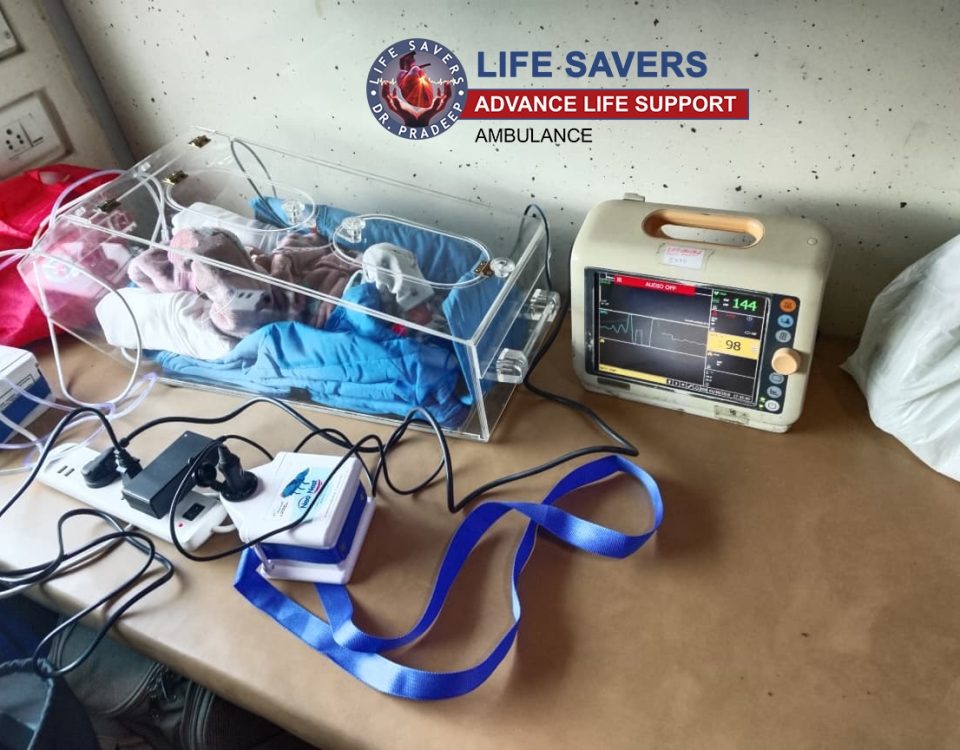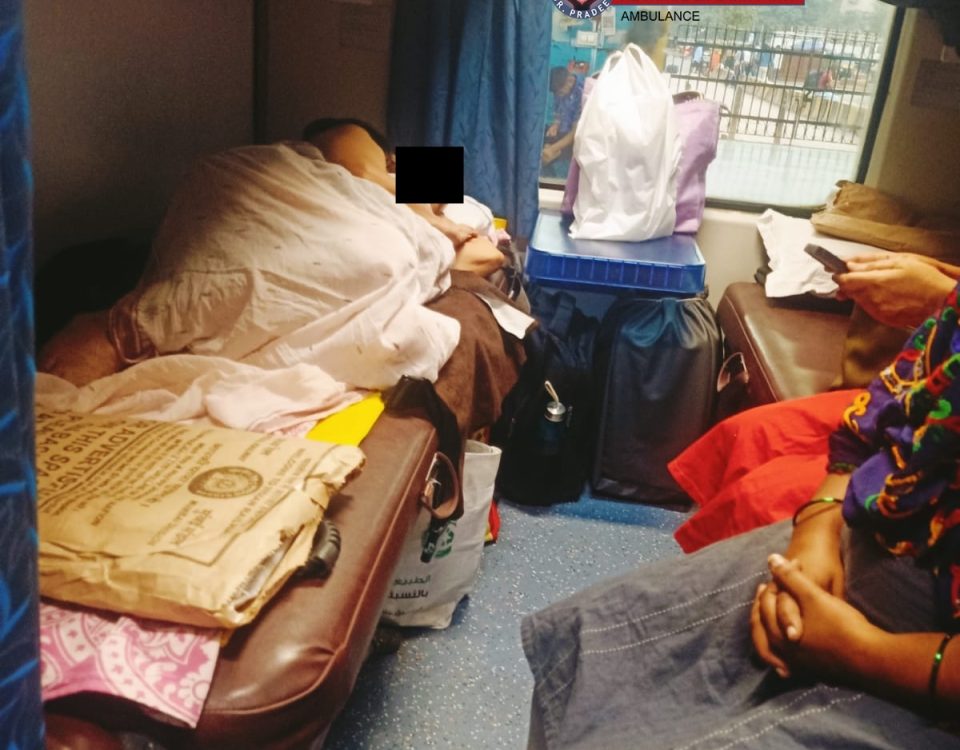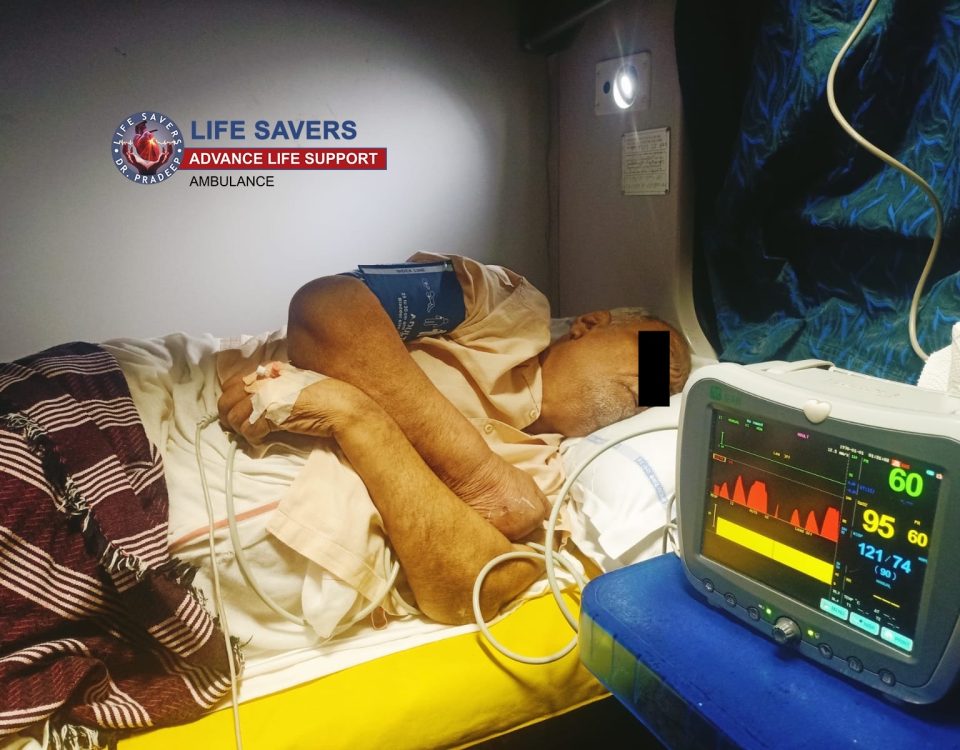Critical ARDS Patient Shifted from Kanpur to Delhi for Advanced ECMO Support
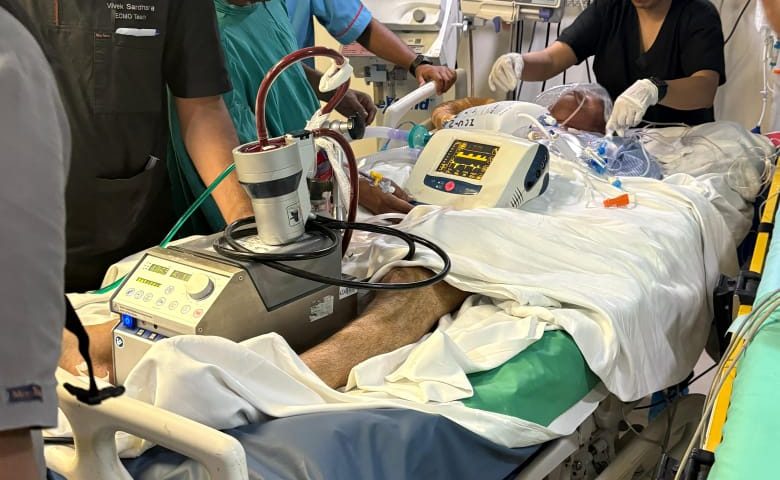
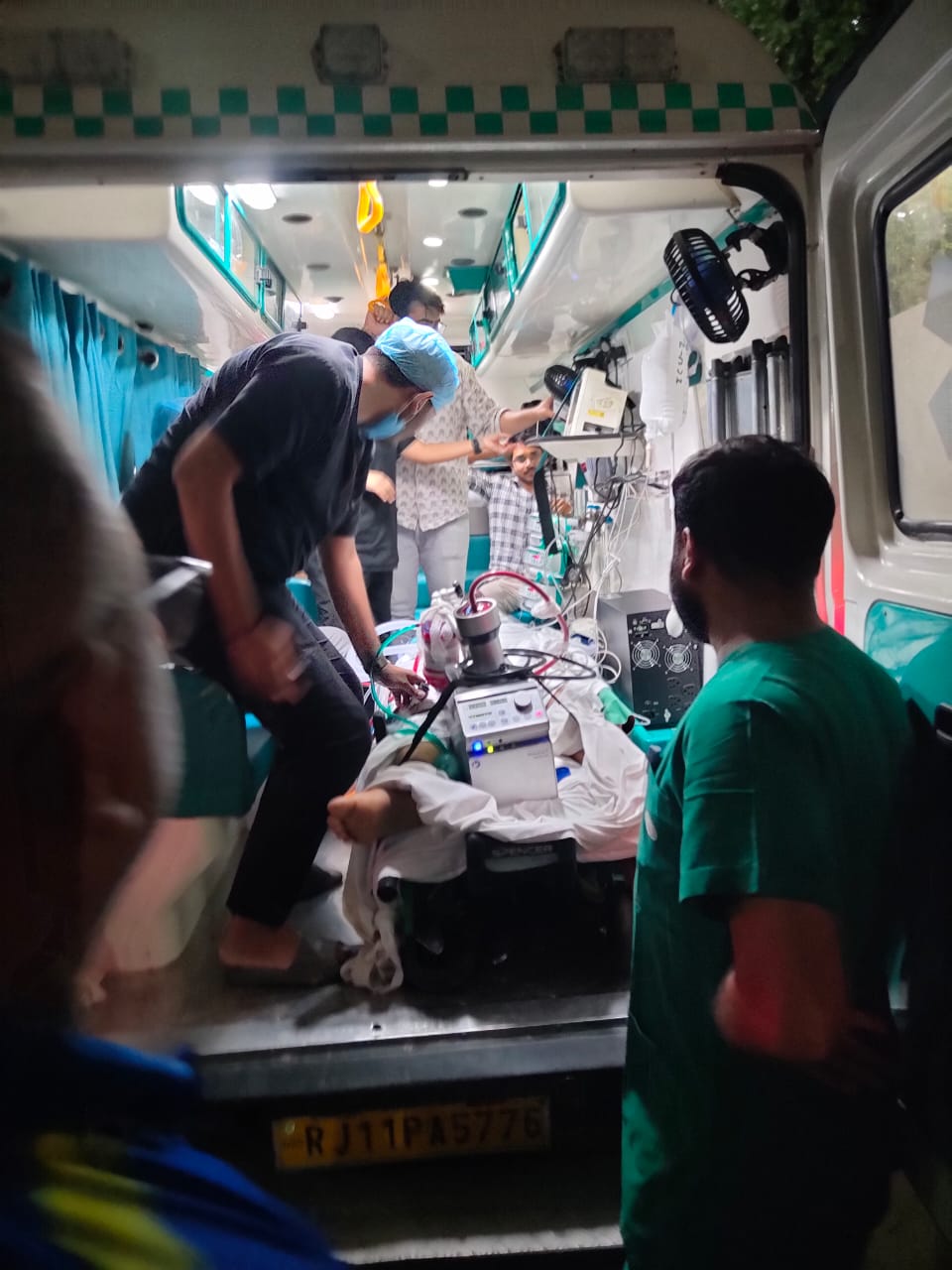
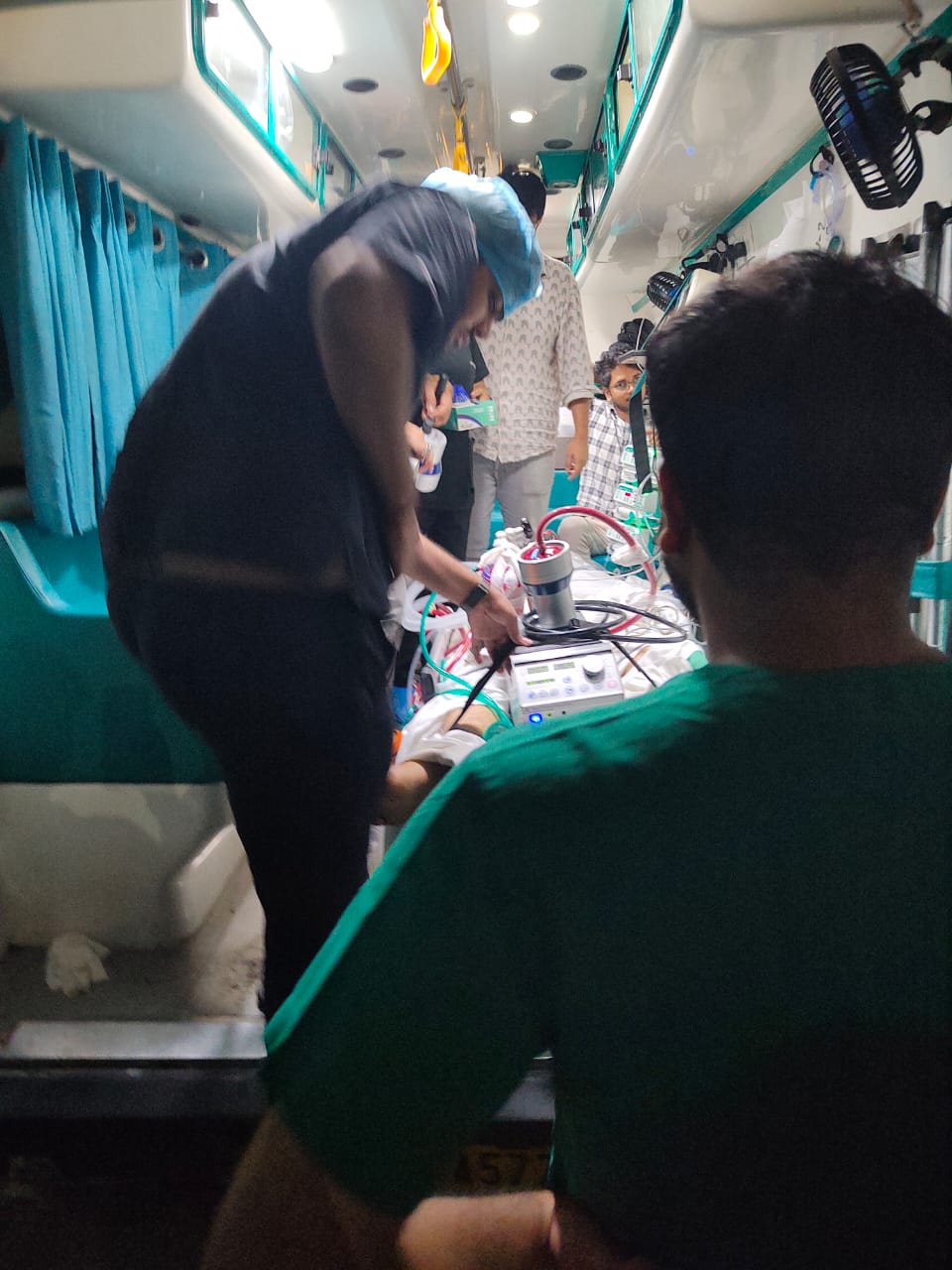
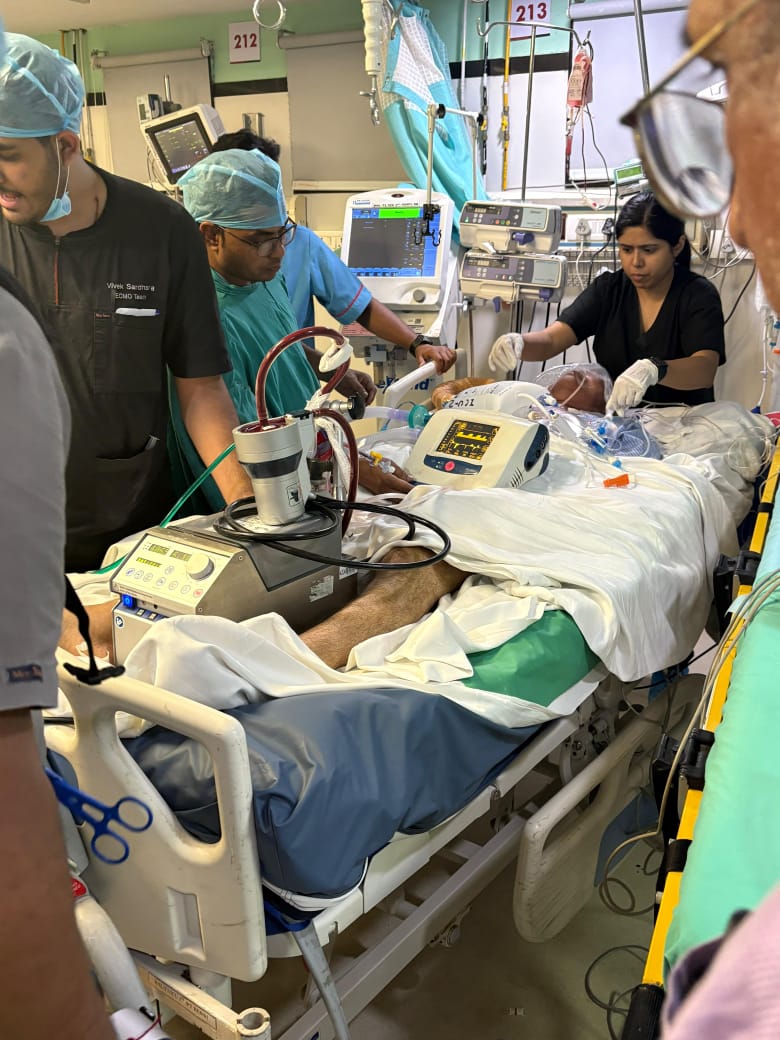
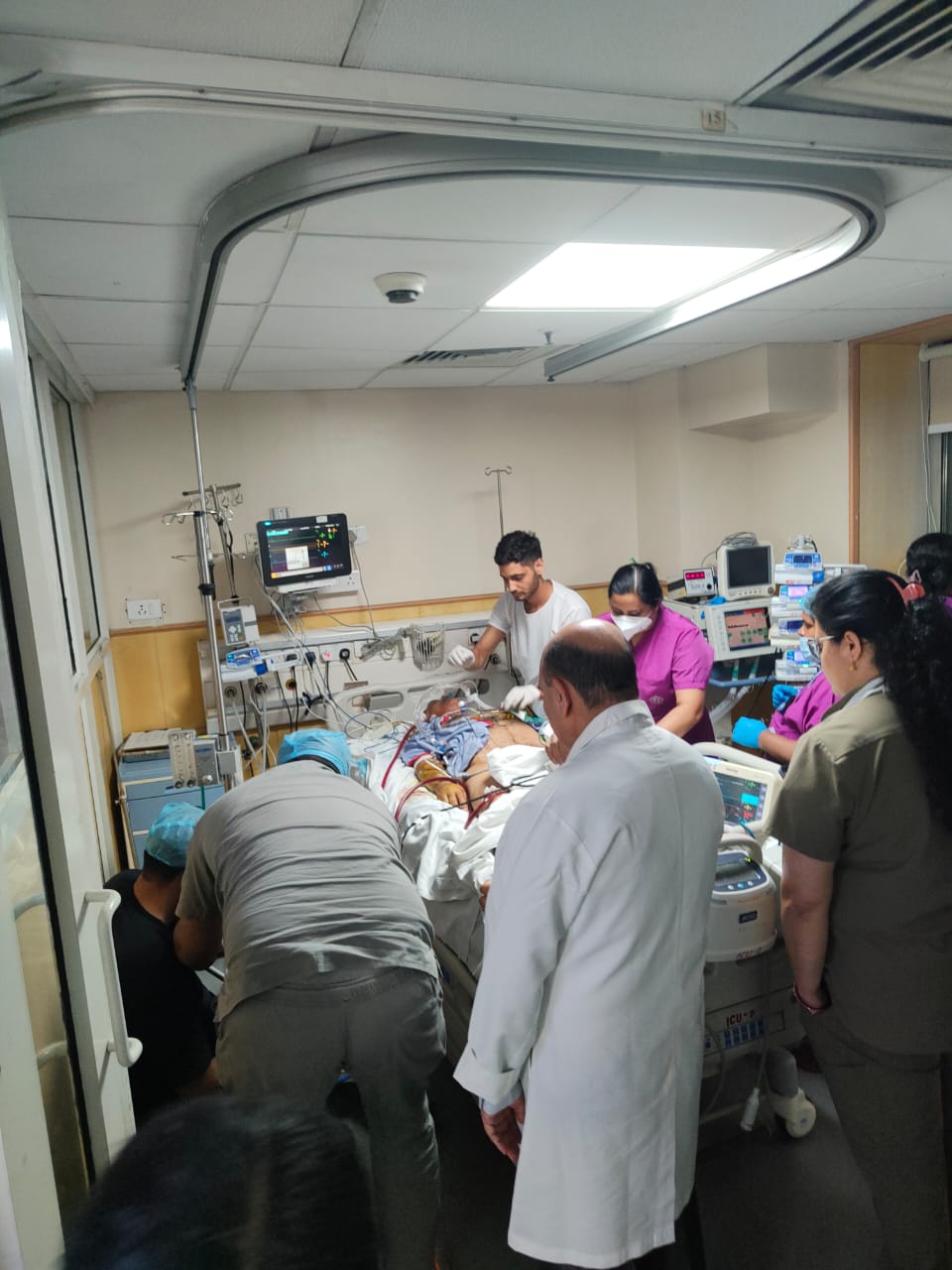
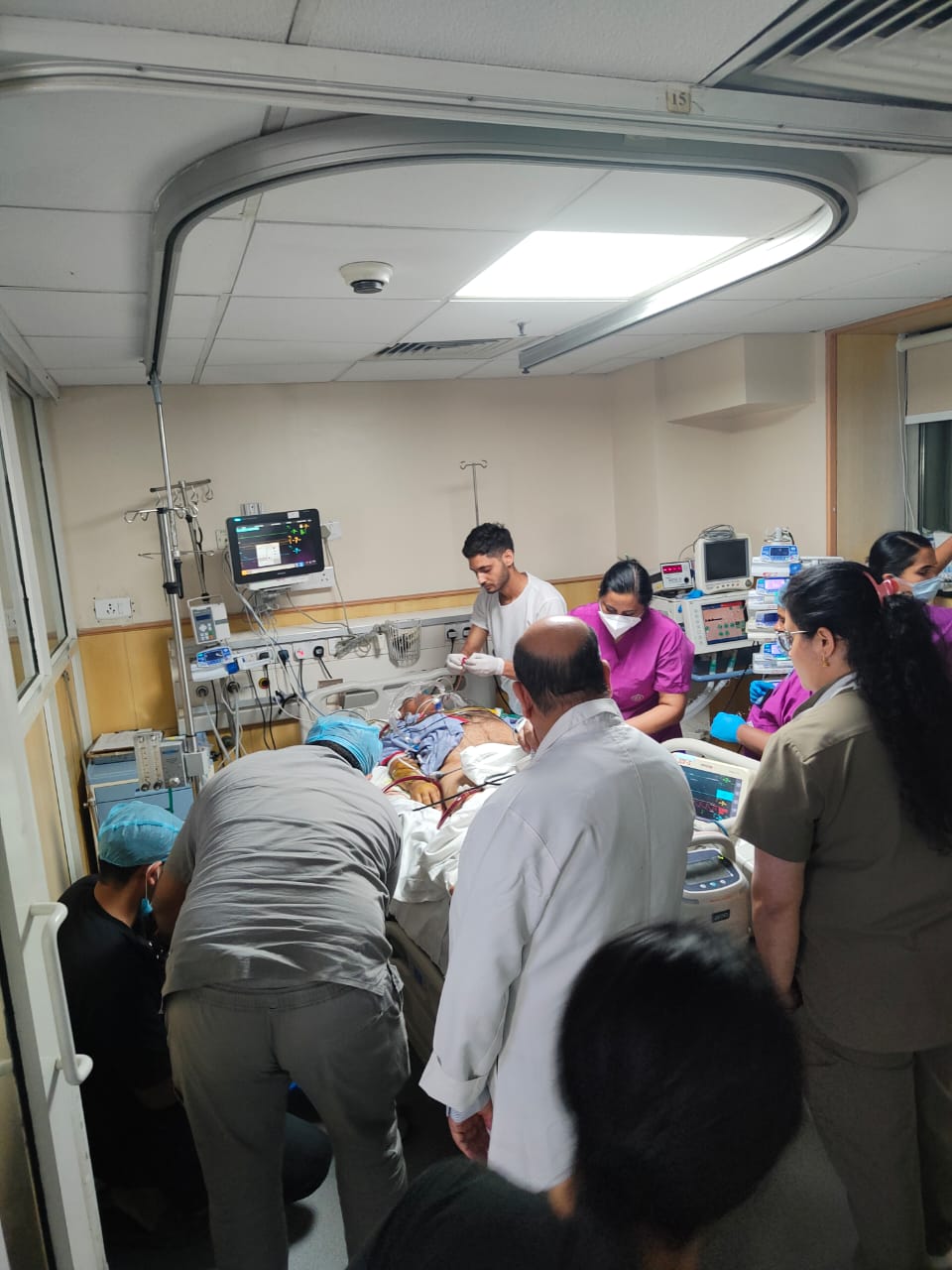
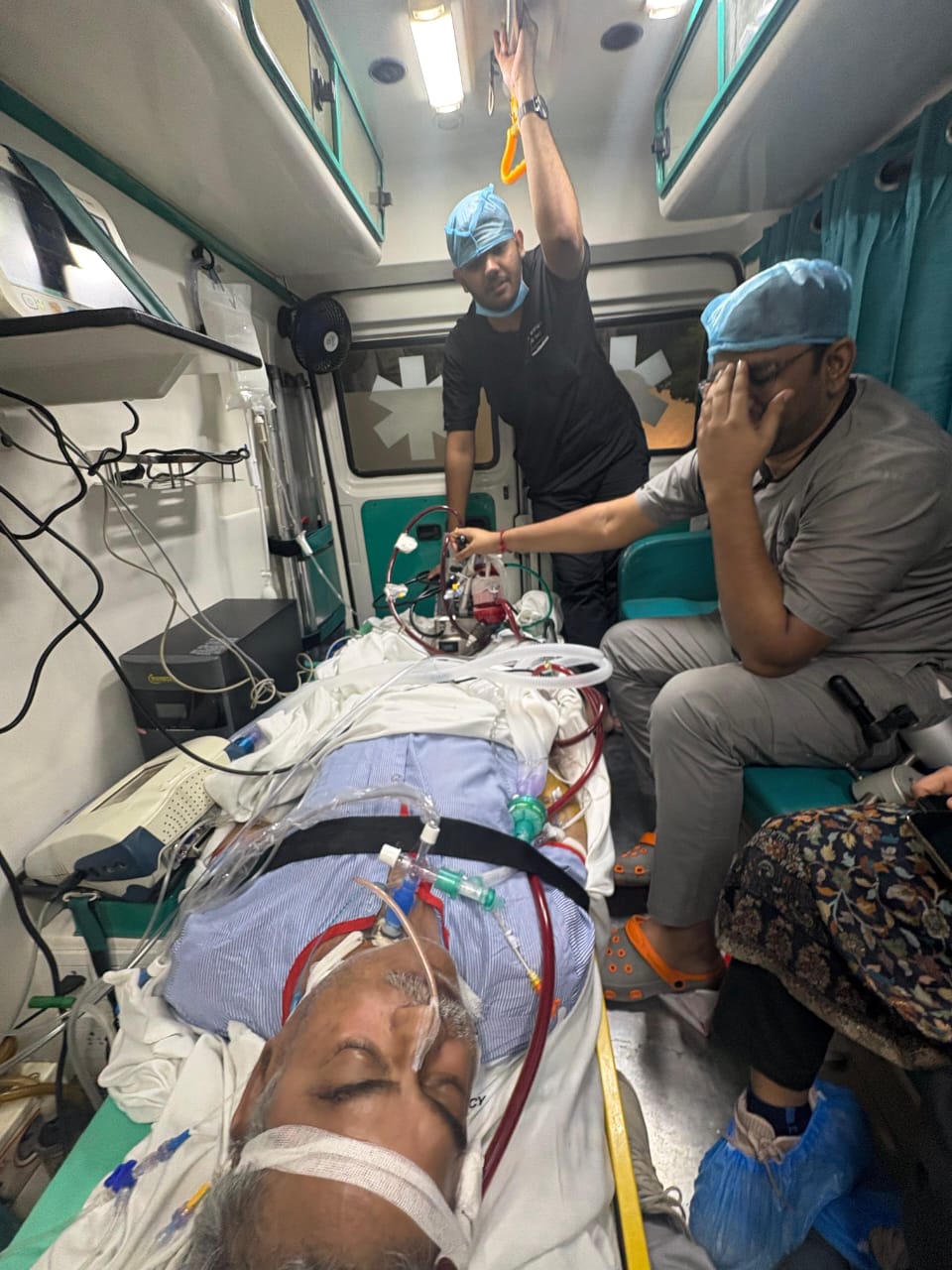
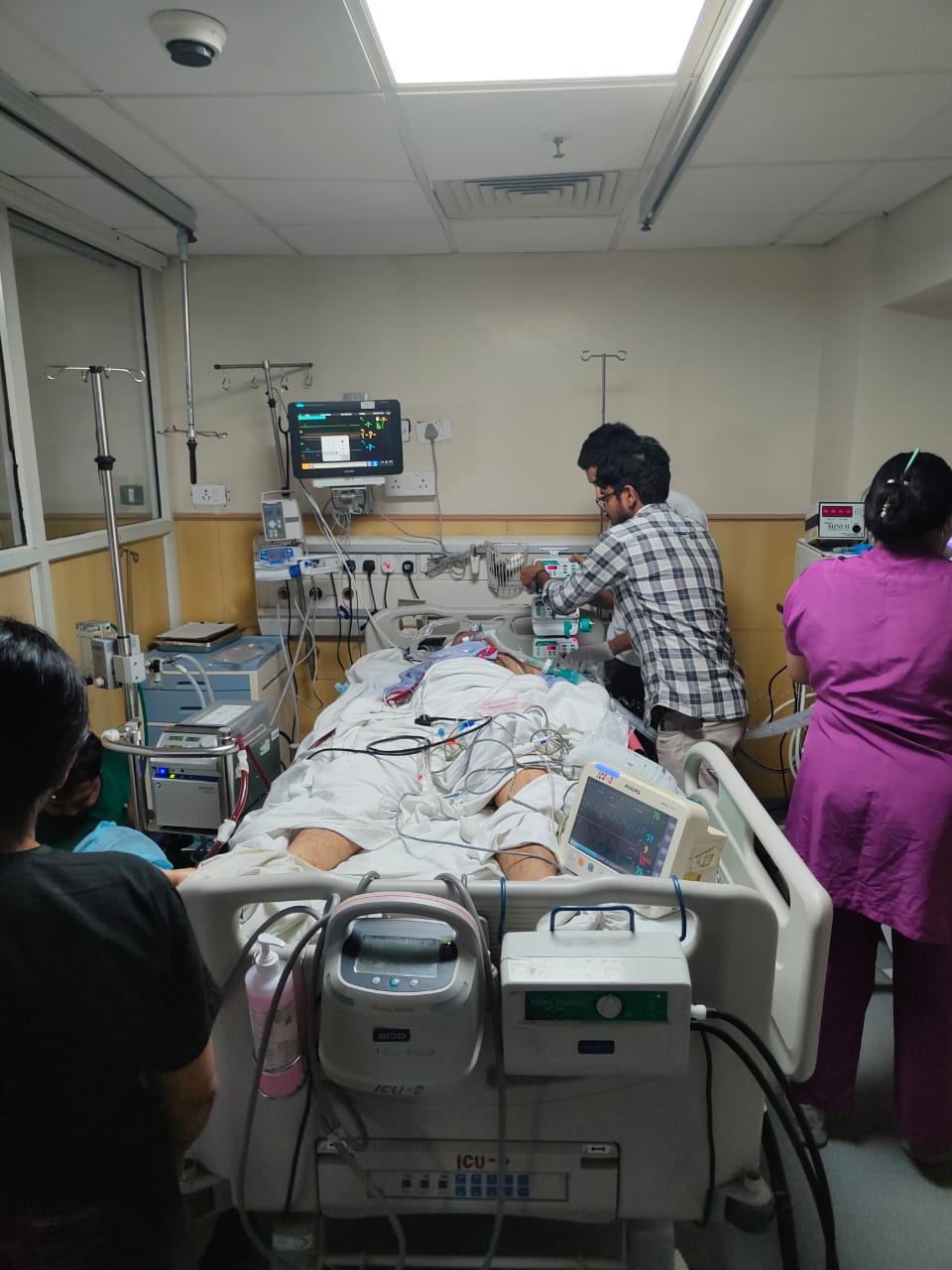
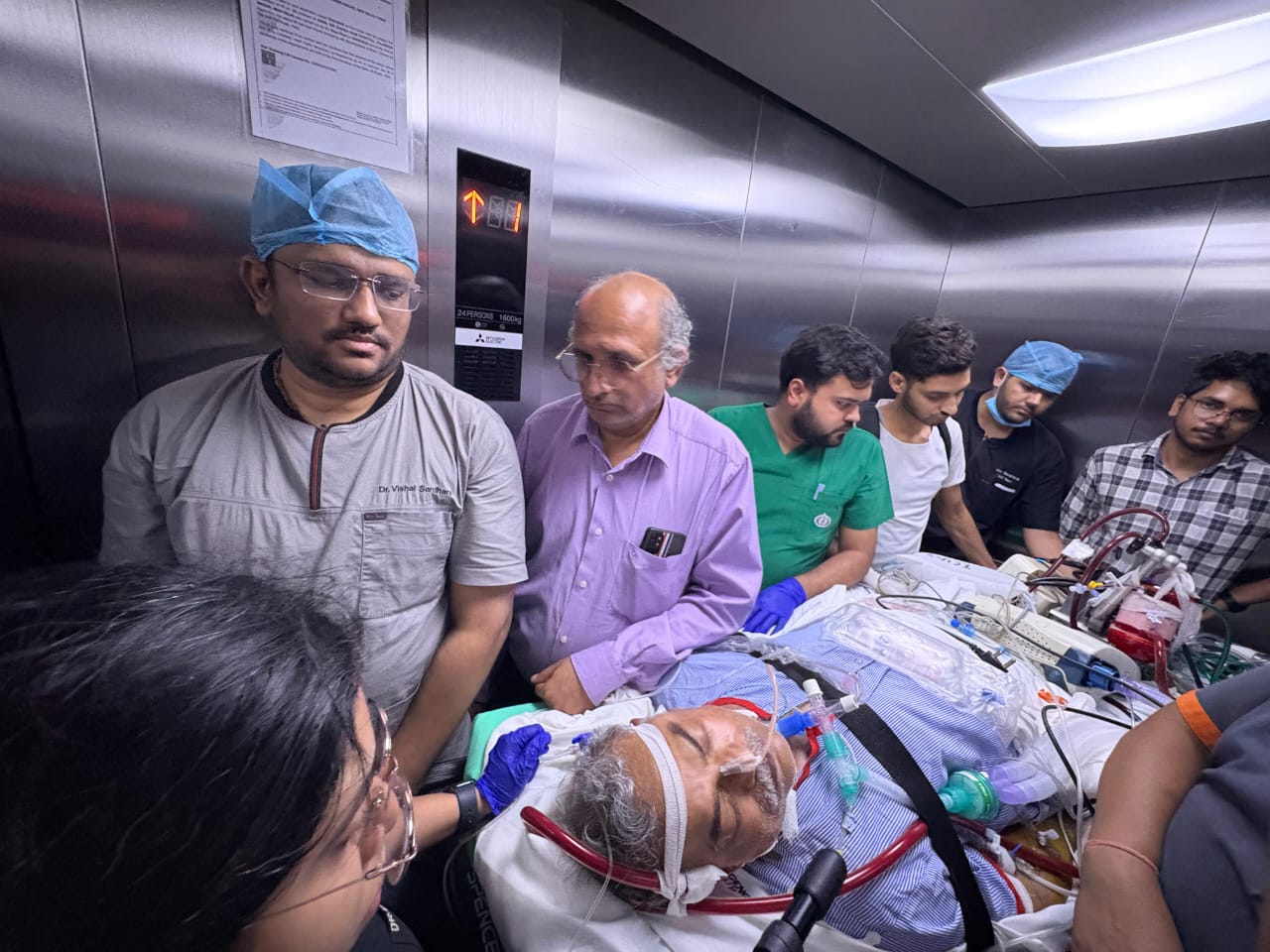
In critical medical emergencies, timely decisions and expert interventions can often mean the difference between life and death. Such was the case of a 66-year-old male patient who faced a severe respiratory crisis in Kanpur and was later transferred to Delhi under complex life-support systems for further advanced care.
Medical Condition and Hospital Admission
The patient, a 66-year-old male, was admitted to *Regency Hospital, Kanpur, with symptoms of severe respiratory distress. After a thorough medical evaluation, he was diagnosed with **Acute Respiratory Distress Syndrome (ARDS), which developed as a complication secondary to *pneumonia.
ARDS is a life-threatening lung condition that prevents enough oxygen from getting to the lungs and into the blood. It often results from an infection or injury and requires immediate intensive care. In this patient’s case, his lung function deteriorated progressively despite being on invasive mechanical ventilation—a machine that helps patients breathe when their lungs cannot do so on their own.
Progression to Refractory Hypoxemia
Over time, the patient developed refractory hypoxemia, meaning his oxygen levels in the blood remained dangerously low (partial pressure of oxygen i.e., PaO₂ ranging between 38–40 mmHg), even with high levels of oxygen support through the ventilator. This marked a critical stage where conventional treatment was no longer effective.
Initiation of ECMO in Kanpur
In response to his worsening condition, the critical care team initiated Veno-Venous Extracorporeal Membrane Oxygenation (VV-ECMO) at a Kanpur-based hospital. ECMO is an advanced life-support technique used in patients with severe but potentially reversible respiratory or cardiac failure. It functions as an artificial lung by oxygenating the patient’s blood outside the body, giving the lungs time to heal.
With VV-ECMO, blood is drawn from a large vein, oxygenated via a membrane oxygenator, and returned to the venous system—bypassing the lungs temporarily. This therapy is typically reserved for the most critically ill patients.
Life Savers: Pioneers in ECMO Transfers Across India
Life Savers is one of India’s most trusted names when it comes to critical care patient transport, especially in cases that demand ECMO ambulance support. Our team deployed a fully equipped ACLS ECMO ICU ambulance for this intercity road transfer, ensuring all life support systems functioned continuously throughout the 9-hour journey from Kanpur to Delhi.
Our trained ECMO specialists, including an intensivist, ECMO technician, and ACLS-certified paramedic staff, were present onboard to monitor the patient and the ECMO circuit round the clock.
Hemodynamic Stabilization and Transfer Planning
After 4 hours of ECMO initiation, the patient showed signs of hemodynamic and respiratory stabilization under the ECMO system. However, to ensure access to more comprehensive resources, specialized pulmonology support, and advanced lung recovery programs, it was decided that the patient be transferred to a tertiary care facility in Delhi.
The receiving hospital, Sir Ganga Ram Hospital, New Delhi, is renowned for its advanced ECMO and critical care infrastructure. The goal of the transfer was to provide the patient with a higher level of expertise in pulmonary rehabilitation and critical care medicine.
Inter-Hospital Transfer by Road Ambulance
Transporting a critically ill patient on ECMO support is a highly specialized process that requires expert coordination, equipment, and experienced medical staff. The patient was safely transferred by road ambulance under the supervision of a trained critical care team equipped with ECMO-compatible life support systems.
During the intercity transfer from Kanpur to Delhi, the medical team maintained continuous monitoring of the patient’s vital signs, ECMO parameters, and ventilator settings. A well-coordinated effort by paramedics, critical care doctors, and technicians ensured a safe and smooth journey of over 400 kilometers.
ICU ECMO Ambulance with Advanced Support
The ambulance was no ordinary transport vehicle—it was a mobile ICU on wheels, featuring:
- Veno-venous ECMO circuit monitoring
- Advanced mechanical ventilator
- Real-time blood gas analysis
- Invasive arterial and central line monitoring
- Infusion pumps for continuous sedation and inotropes
- ACLS and BLS life-saving equipment
- This ICU ECMO ambulance offered a seamless bridge between the two hospitals while maintaining high-end critical care standards.
Importance of Advanced Critical Care Networks
This case highlights the critical importance of timely escalation in care, coordination between hospitals, and the availability of mobile ECMO transport facilities in India. When local facilities are limited in handling severe cases like ARDS with refractory hypoxemia, transferring patients to centers with higher expertise and infrastructure becomes a life-saving necessity.
Such advanced critical care transfers demonstrate how medical science, teamwork, and logistics come together to offer hope and healing to patients in dire conditions.
Conclusion
The successful stabilization and intercity transfer of the 66-year-old ARDS patient on ECMO support underscores the evolving capabilities in emergency and critical care transport in India. With improved infrastructure, awareness, and expert intervention, more lives can be saved even in the most critical conditions.

